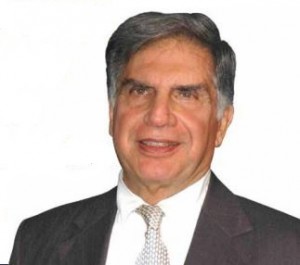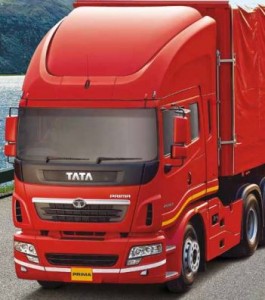– Ratan Tata
 Global sales of passenger cars and commercial vehicles grew by 3.6 per cent and 5.8 per cent respectively during 2011-12. In the US, where there are clear signs of growth, sales increased by 9.8 per cent for cars and 14 per cent for commercial vehicles, whereas in Western Europe and the UK, where there has been only marginal growth, sales declined for cars but increased for commercial vehicles.
Global sales of passenger cars and commercial vehicles grew by 3.6 per cent and 5.8 per cent respectively during 2011-12. In the US, where there are clear signs of growth, sales increased by 9.8 per cent for cars and 14 per cent for commercial vehicles, whereas in Western Europe and the UK, where there has been only marginal growth, sales declined for cars but increased for commercial vehicles.
In Asia, the main drivers of growth have been China and India, which have collectively registered growth, albeit at lower levels than the previous year.
Addressing the annual general meeting of Tata Motors Ltd. in Mumbai, its Chairman, Mr. Ratan N. Tata, observed that, by contrast, Asia has continued to register growth, mainly from domestic and overseas sales growth in China and India. China has emerged as the largest car market and car producing center of the world. Chinese brands have started to appear in world markets, and in all probability these will grow into international brands in the next few years.
The year also witnessed increased sales of passenger cars and commercial vehicles in India as compared to the previous year, the main growth being at the low end, with an emphasis on new, fuel-efficient cars and a shift of preference to diesel. The domestic consumer showed considerable interest in small SUVs and in all luxury brands.
According to the Chairman, the year was mixed bag for Tata Motors. The company retained its market leadership in commercial vehicles and gained further market strength through the highly successful Ace and Magic, its new line of light pick-up trucks. On the other hand, passenger car sales were below expectations, even though sales of the Nano increased over the previous year.

He said that in the coming years, Tata Motors’ predominance in commercial vehicles would be challenged by international brands like Mercedes-Benz, Volvo and Navistar which have all entered, or are in the process of entering India. A new line of very competitive, fuel-efficient vehicles is being developed by Tata Motors to meet the competition head-on.
In passenger cars, the company would face even greater competition from the existing automotive brands in the country. Hence the company would have to address the marketplace more effectively with its existing and future products in order to regain the marketshare that it earlier enjoyed.
The fundamental economies of the Nano, which was globally acclaimed when it was unveiled in 2008 and which was plagued with start-up roadblocks in West Bengal, will continue to establish itself in the Indian market with a wider sales and service network. The potential market for such an affordable car is enormous throughout the developing world.
Mr. Tata further observed that the automobile sector impacts the lives of millions worldwide. It creates a huge number of direct and indirect jobs and drives the quest for new technologies, lighter, stronger materials as well as new processes and business models. This has resulted in some of the most important infrastructure investments in many countries – highway systems which connect cities, connect production centers to markets and rural areas, and connect communities through bridges and tunnels.
While commercial vehicles constitute one of the main forms of competitive goods transport, based on a business proposition, the passenger car is probably one of the most emotive products in the world today. Despite the much greater interest in performance, advanced technology and reliability, the acquisition of a car continues to have an important element of emotional buyer attraction based on design, style and visual appeal which results in a sale.
“The automotive industry has been, and probably will always be, a barometer of the economic health of a nation, and remains a symbol of its prosperity. It will play an important role in the development of India. Tata Motors will strive to retain its market prominence domestically and internationally and will continue to be a responsible corporate citizen wherever it operates and do the right thing for all its stakeholders and the communities which it serves,” the Chairman added.